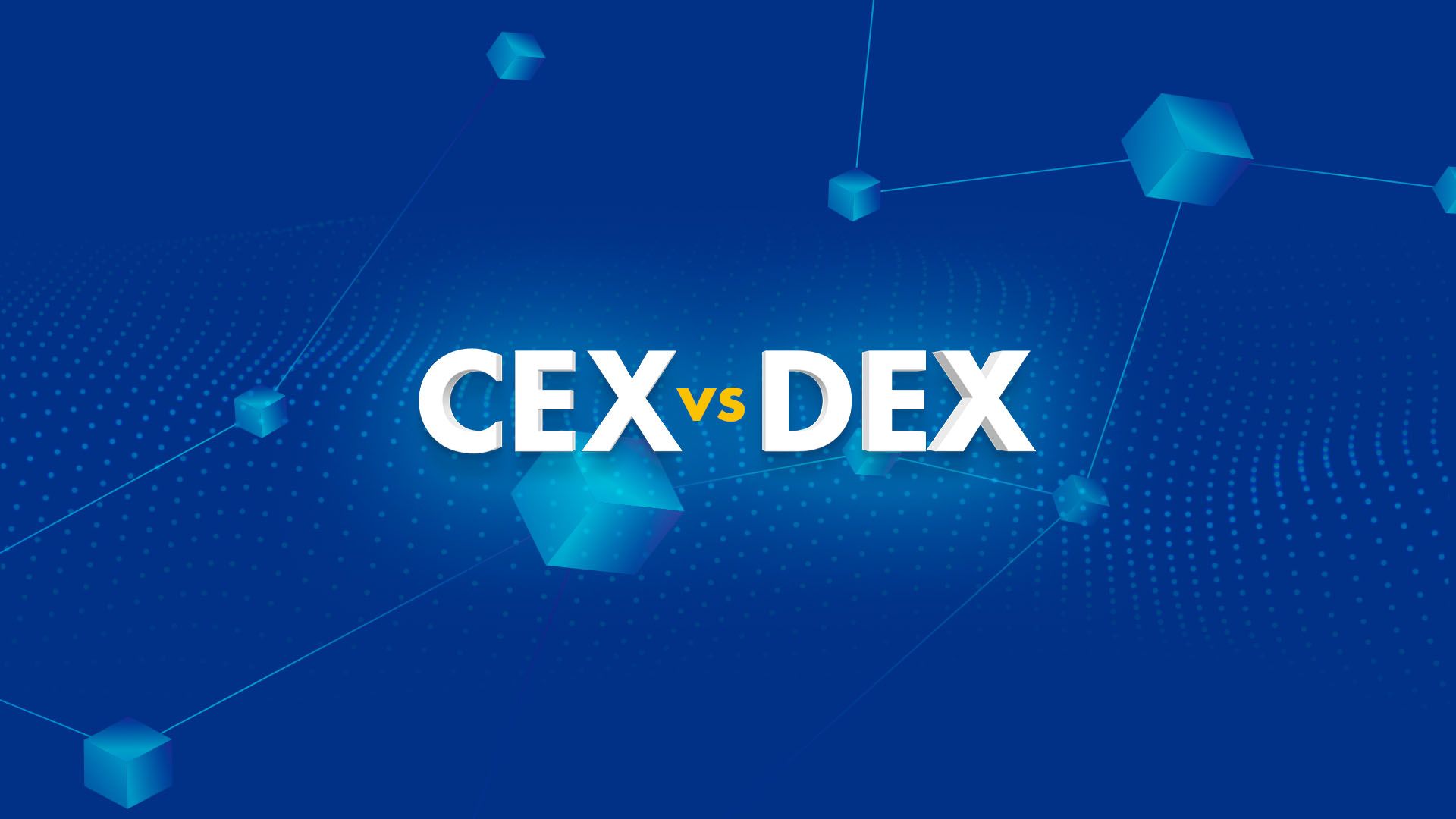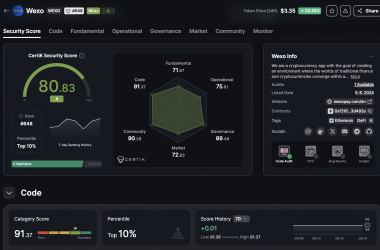
Publicaciones principales

Wexo Points: Find places where you can pay with Bitcoin (App Up...
Search nearby businesses that accept Bitcoin payments
Leer másCrypto markets have two types of exchanges: centralised (CEX) and non-centralised (DEX). What’s their difference? And what should you watch out for when trading on these exchanges?
CEX - centralised exchange
CEXs have been around since the beginning of cryptocurrencies and remain among the most popular crypto exchanges. They are known for unrivalled ease of use, good UX experience, and ability to trade tokens from all blockchains.
Centralised exchanges (Binance, Kraken, and OKEx) have their own order book. Where every order is recorded and verified. To ensure accuracy, data is exchanged internally through dedicated servers and goes through centralised security processes.
CEXs generally operate under regulatory oversight and have extensive in-built “know your customer” security policies. Centralised exchanges also actively intervene against fraudsters in accordance with the applicable laws to prevent money laundering.
Suitable for beginners
This type of exchange is mainly used by beginners because the centralised structure offers a user-friendly platform. This enables the very simple purchase and management of digital currencies.
The volume of orders and transactions on centralised exchanges is usually significantly higher than on DEX, because the network needn’t be updated in real time. So, the trading speed is very high. However, the simplicity of the CEX platform requires that the private keys of the integrated wallets remain on the stock exchange.
An example of a Slovak CEX exchange is the WEXO platform. It is a secure, fast, and simple platform that is regularly updated, compatible with many devices, and with a support team always available.
Advantages of CEX
Trading volumes
Centralised exchanges are usually highly liquid. For newcomers, this is basically a guarantee that their assets can be easily exchanged at any time. For experienced traders, CEX exchanges provide a way to transfer a relatively large amount of funds in a matter of minutes.
Ease of use
One of the best features of most CEXs is the user interface. Centralised exchanges do a great job of bringing new users into the crypto space. Some CEX platforms (Binance) provide simplified versions for users who want basic trading. In addition, they operate in much the same way as online brokers, so they look like old acquaintances to traditional investors.
Many more features
In addition to the huge number of digital assets that CEX supports, they also offer other features – the option to exchange one asset for another, margin trading, crypto derivative trading, exchange bets, and margin lending.
Disadvantages of CEX
Wash Trading
Wash trading occurs when exchanges manipulate transactions to create the impression of having a high volume of trades. This fake display of transaction volume aims to attract potential cryptocurrencies looking for new listing, and new investors looking for an active trading platform. CEX trades take place internally, so there is no way an impartial party can track the transaction. This gives CEX exchanges a lot of strength.
Deposit wallets
Although CEX exchanges provide easy trading and high liquidity, their wallets are depositary. This means that exchanges have authority over your cryptocurrencies. A crypto wallet should be secure. CEX wallets can thus pose a security risk for their traders and investors.
Extensive KYC principles and regulations
The KYC (Know-your-customers) policy means that operators are required to collect extensive data about their customers. Centralised exchanges are under the regular control of regulators, third party providers, and legislation. This regularity goes against the basic idea of cryptocurrencies.
DEX - decentralised exchange
The decentralised exchange offers the same basic functions as CEX – order books (Automated Market Maker (AMM)), trading place, matching system, and security functions.
The difference from CEX is that all these functions are decentralised. DEXs are not based on internal servers and their own IT infrastructure but act as a decentralised application (dApp) in blockchain. In principle, it is important to distinguish between two types of decentralised exchanges: currency-oriented and currency-neutral DEX.
Decentralised exchanges (PancakeSwap and Uniswap) are autonomous financial protocols powered by smart contracts that allow crypto traders to transfer one digital asset to another with all transactions visible on the blockchain.
Decentralised exchanges have gained significant market share in cryptocurrencies due to increasing user friendliness and growing understanding among cryptocurrency users about the importance of maintaining control over private keys.
Advantages of DEX
Anonymity and privacy
Using a decentralised exchange usually only requires attaching a wallet and signing a transaction. No identity verification process is required.
Security
Decentralised exchanges are generally more secure than centralised exchanges.
Hackers focus on exchanges to access a central database and extract users’ private keys and withdraw their resources. As the DEX exchange isn’t a deposit and does not hold your private keys, hackers cannot access your wallet. The DEX exchange also doesn’t require any identity checks, thereby eliminating the risk of leakage of user’s private data.
DeFi and NFT integration
DEX exchanges give users access to a world of smart contracts and DApps that provide financial services, including credit and savings products, as well as NFT projects.
Disadvantages of DEX
The non-deposit nature of DEX
That the DEX exchange is not a deposit exchange can become a disadvantage if the user does not keep his/her private keys secure. In the case of lose or forgetting them, he/she will permanently lose the resources. There is no way to reset the initial phrase for a unique wallet, which means there is no way to recover the keys.
Limited trading
DEX features are currently limited - margin trades, limit orders, futures, options, and other features are usually unavailable.
Efficiency and effectiveness
Decentralised exchanges are not as fast or efficient as CEX due to the scalability problems that most blockchains face. Centralised exchanges avoid this problem because they use mechanisms inside and outside the chain to ensure smooth running.
CEX or DEX - which crypto exchange to use?
Both types of crypto exchanges allow users to buy and sell cryptocurrencies, but with major differences in key elements (liquidity, security, and usability). For beginners who want to enter the crypto space, CEX provide an easy and fast way to trade. On the other hand, DEX exchanges are more suitable for experienced traders who seek privacy and complete control over their digital funds.
WEXO as a decentralised stock exchange
The WEXO platform is constantly evolving in terms of decentralisation. In the future, every customer will be able to choose how to use WEXO - whether they rely on security in our hands or prefer to keep control of their digital assets themselves.


